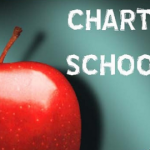This is a guest post by Alecia Ford. Ms. Ford is a teacher in Metro Nashville Public Schools.
It’s so easy to demonize others: people on the other side of political issues, borders, the railroad tracks.
Each summer I choose a 1 – 2 week long professional development opportunity. This year, I applied to The Educators’ Cooperative because Greg O’Loughlin at University School of Nashville was purposefully getting us “others” together. The Cooperative is a public/private/charter educator group in its second year that exists for “creating, supporting and sharing best practices in teaching and learning”, @Ed_Cooperative #forteachersbyteachers on Twitter. Greg is the Director and founder of the Cooperative.
Ideally, 30 teachers are selected from the applicants: 10 each from public, charter and private/independent schools according to the website. While our cohort didn’t hit that mark exactly, we had educators representing grades K through 12, a variety of content areas and years of experience, from magnet, zoned, charter, private and religious schools in Nashville. I have taught 12 years in Metro zoned and magnet schools, my last 7 years at J. T. Moore Middle.
Nashville has struggled to have civil dialogue about charters, public education and ed policy. The whole country is struggling with civil dialogue. In all honesty, I didn’t just want to learn more about my craft. I also wanted to get in there and meet these teachers from the “other” schools (not zoned public schools) and understand where they were coming from – no loaded words or posturing, no middlemen/women between us. I guess I was wondering… how could they?
Here’s what I learned:
- I still and always love being a student and learning from and with others.
- All of us are interested in professional growth and improving our craft.
- All of us are interested in providing excellent educational opportunities for our students, in both academics and in social/emotional growth.
- All of us chose teaching. Some of us came from non-traditional pathways, some as second career teachers, some always knew they wanted to be teachers. WE BELIEVE IN THIS MISSION.
We practiced a Critical Friends Protocol that uses small groups to generate ideas and solve problems. We explored design thinking with stoke.d one afternoon. We had a panel of mindfulness coaches answering questions. In between, we got to know each other and liked each other. We built trust all week. No time was wasted. And I wondered, what would it be like to talk about equity with this cross-section of inspired, talented, open-minded educators from across the city?
Toward the end of the week, Greg orchestrated an Ed Camp. Edcamp is a structure where participants suggest topics which are then organized into common themes and scheduled into time slots. Also called un-conference, it’s a way to catch anything you didn’t get to talk about yet and network around common interests. There is no leader in each session, just interested participants who can discuss and share ideas.
I put up post-its with EQUITY, Systemic Racism, Vouchers and Ed Policy written on them, assuring myself I wasn’t being divisive or political just for the sake of it. I reminded myself of a Brittany Packnett tweet, ‘Calling out racism isn’t divisive – racism is divisive.’ We need to be able to talk about tough topics.
Ten minutes later I was in a room with like-minded educators from all types of schools who are also interested in equity and systemic injustices. We all know some schools simply have greater needs while other schools have greater resources, financially and socially. We worry about public tax money going to private, religious and for-profit schools. We wonder why and how schools with such high concentrations of poverty still exist in Nashville. We worry vouchers will only subsidize middle class and affluent families already attending private schools, and accessibility will keep out families without transportation. We wonder whether these ideas will help or harm our most vulnerable students. We want there to be excellent choices for every family, no matter your zip code.
I saw a dedicated teacher at a new charter school working to create opportunities for her students. I heard zoned school teachers wondering if a single pot of money split by a larger number of schools would automatically mean less resources for their students and schools. I saw a private and public school teacher start talking about a shared garden space. But I didn’t see “other” anymore, not in that classroom.
We all want what’s best for OUR kids. What if we (Nashville) valued ALL kids as OUR kids? What if every student could get what they needed to thrive? We need to keep this conversation going, keep practicing civil discourse, keep reaching across the lines of other. Thank you, Greg, for bringing us together. We have work to do.
For more on education politics and policy in Tennessee, follow @TNEdReport.


